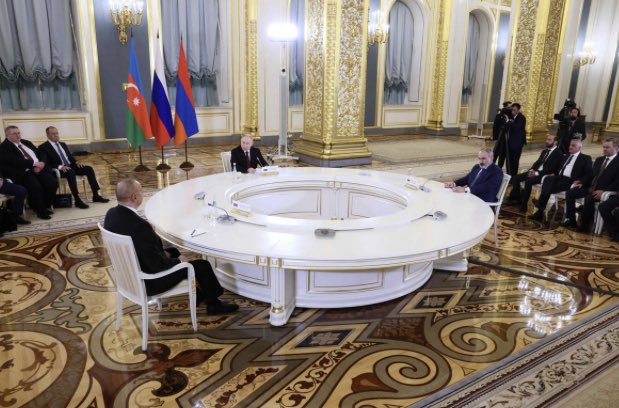AZERBAIJAN: On Saturday, Azerbaijan stated that both Russia and Armenia have not been meeting the requirements of the Nagorno-Karabakh enclave ceasefire agreement, hours after the European Union called on Azerbaijan and Armenia to avoid resorting to “violence and harsh rhetoric.”
Since the dissolution of the Soviet Union, Azerbaijan and Armenia have engaged in two conflicts over the Nagorno-Karabakh region. This small mountainous enclave, which belongs to Azerbaijan, is home to approximately 120,000 ethnic Armenians.
Following intense conflict and a ceasefire mediated by Russia, Azerbaijan gained control of territories previously held by ethnic Armenians in and around the mountainous enclave in 2020.
In a statement posted on its website, the Azerbaijani foreign ministry said that “Armenia has not fulfilled many provisions of the statement, and Russia has not ensured the full implementation of the statement within its obligations.”
Subsequently, Armenia and Azerbaijan have engaged in discussions aimed at reaching a peace agreement, with Russia actively advocating for a prominent role and seeking to establish mutually acceptable borders, resolve disputes regarding the enclave, and facilitate the normalisation of relations between the two countries.
EU Council President Charles Michel convened talks in Brussels with Azerbaijani President Ilham Aliyev and Armenian Prime Minister Nikol Pashinyan, with the objective of putting an end to the longstanding hostilities that have spanned over three decades.
Armenia has asserted that the peace treaty should grant them specific rights and ensure their security. However, Azerbaijani Foreign Minister Jeyhun Bayramov dismissed this request in a June interview, deeming it unnecessary and viewing it as interference in Azerbaijan’s internal affairs.
“Real progress depends on the next steps that will need to be taken in the near future. As a matter of priority, violence and harsh rhetoric should stop in order to provide the proper environment for peace and normalisation talks”, said Michel.
“The population on the ground needs reassurances, first and foremost regarding their rights and security,” he told reporters.
On Saturday, Russia stated that it was prepared to arrange a trilateral conference between Armenia, Azerbaijan, and Russia at the level of foreign ministers. The Foreign Ministry stated in a statement that a summit in Moscow to establish a peace treaty could take place after this.
It was stated that a crucial aspect of this agreement should involve providing “reliable and clear guarantees of the rights and security of the Armenians of Karabakh” while also ensuring the fulfilment of previous agreements between Russia, Azerbaijan, and Armenia.
In response to the Moscow statement, Azerbaijan expressed “disappointment and confusion,” as they believe it contradicts Russia’s previous declarations of supporting Azerbaijan’s territorial integrity.
Michel also conveyed the EU’s encouragement for Azerbaijan to engage in direct talks with the Karabakh Armenians, aiming to foster mutual trust and confidence between the involved parties.
The response of Aliyev and Pashinyan remains uncertain, as they departed without providing a statement to the press. The self-proclaimed authorities in Nagorno-Karabakh assert their independence; however, no country acknowledges their legitimacy.
Apart from the EU, the United States has also been urging both sides to come to a peaceful resolution. Meanwhile, Russia, traditionally the dominant mediator in the area, has been preoccupied with the conflict in Ukraine, which could potentially lead to a decline in its influence.
Also Read: Putin Claims Sanctions Bolstering Russia’s Strength at SCO Summit

